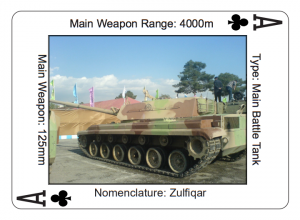In a not very subtle sign of the times, the U.S. Army has produced a deck of playing cards featuring weaponry used or held by Iran in order to familiarize soldiers with Iran’s inventory of weapons and presumably to facilitate their recognition on the battlefield.
The Iran collection follows similar decks of playing cards illustrated with Chinese and Russian weapons.
Another set of U.S. Army playing cards featuring North Korean weapons systems is forthcoming.
January saw us watching whether the government would fund science. February has been about how that funding will be distributed, regulated, and contested.
This rule gives agencies significantly more authority over certain career policy roles. Whether that authority improves accountability or creates new risks depends almost entirely on how agencies interrupt and apply it.
Our environmental system was built for 1970s-era pollution control, but today it needs stable, integrated, multi-level governance that can make tradeoffs, share and use evidence, and deliver infrastructure while demonstrating that improved trust and participation are essential to future progress.
Durable and legitimate climate action requires a government capable of clearly weighting, explaining, and managing cost tradeoffs to the widest away of audiences, which in turn requires strong technocratic competency.
